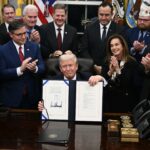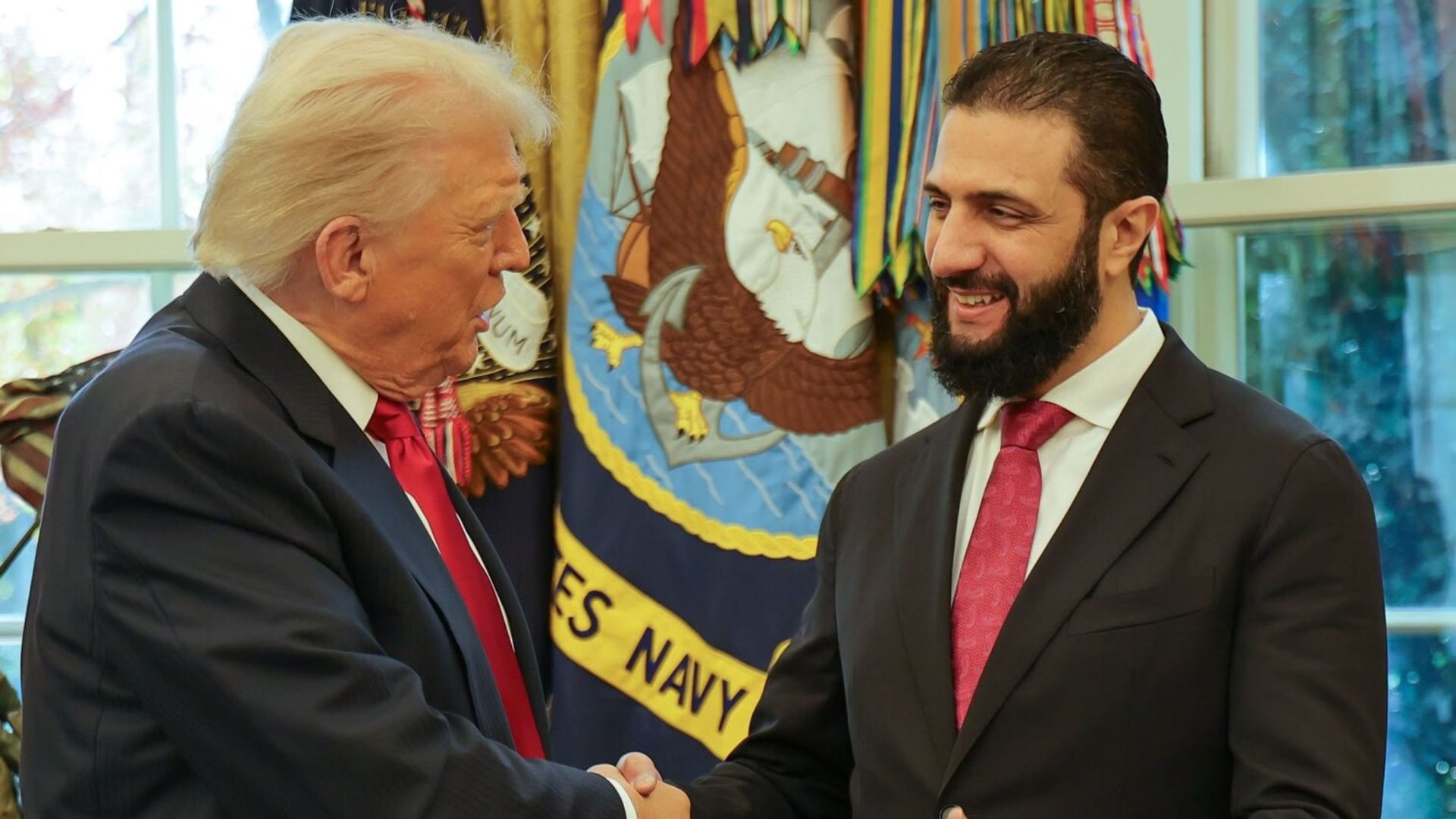
United States President Donald Trump has signed a federal government spending bill less than two hours after the House of Representatives passed it, bringing an end to the longest government shutdown in US history, which hit workers and families in need and heavily affected air travel.
“With my signature, the federal government will now resume normal operations,” Trump said late on Wednesday, pledging to work to lower the cost of living.
- list 1 of 3House to vote on bill to end US shutdown: Why are Democrats opposing it?
- list 2 of 3What’s Being Said About the US Govt Shutdown
- list 3 of 3Trump ‘spent hours’ with victim at Epstein’s house, emails allege
end of list
The new spending bill, which extends federal funding until January 30, was backed by a margin of 222 to 209 in the Republican-majority House. It was approved by the Senate earlier this week, after seven Democrats and one independent agreed to support it.
Trump’s signature brings to an end a 43-day shutdown that began on October 1, during which all but essential government services had ground to a halt.
Federal workers will now return to their jobs as early as Thursday, but it is unclear how quickly full government services and operations will resume.
About 670,000 civil servants were furloughed during the closure, while a similar number worked without compensation, but will now receive back pay.
The shutdown’s end offers hope that services crucial to the country’s beleaguered air travel industry, in particular, will have time to recover before the Thanksgiving holiday travel wave, which is just two weeks away.
Restoration of food aid to millions of American families before Christmas may also make room in household budgets for increased spending during the festive season.
Advertisement
Crucially, however, the deal has not resolved one of the shutdown’s most central issues – health insurance subsidies for 24 million Americans under the Affordable Care Act, which the Trump administration has said it will not renew when they expire at the end of the year.
A vote on healthcare subsidies is due to take place in the Senate by December.
The Republicans and the Democrats have sought to blame each other over the 43-day closure, but neither side appears to have won a clear victory.
A Reuters/Ipsos poll released on Wednesday suggested that half of Americans blamed Republicans for the shutdown, while 47% found fault with the Democrats.
During his late-night signing ceremony on Wednesday, Trump lambasted Democrats for their role, saying “this is no way to run a country” and “we can never let this happen again.”
“They knew that it would cause pain, and they did it anyway,” House Speaker Mike Johnson said of the Democrats. “The whole exercise was pointless. It was wrong and it was cruel.”
But Democratic Representative Mikie Sherrill, who was elected last week as New Jersey’s next governor, took aim at the funding bill and the Trump administration in her last speech on the US House floor.
“Do not let this body become a ceremonial red stamp from an administration that takes food away from children and rips away healthcare,” Sherrill told her colleagues.
“To the country: Stand strong. As we say in the Navy, don’t give up the ship.”
Bruce Fein, a former US associate deputy attorney general, said it was too premature to suggest that the passage of the spending bill was a “Republican victory”.
“I think that we are going to come to January and there is going to be another potential shutdown,” Fein told Al Jazeera.
“The parties are still very, very far apart on any kind of consensus on how the budget should be allocated, especially with the programme for the medically needy and for those who need food, compared to the Republicans supporting massive tax cuts for billionaires and staggering money for the military-industrial complex,” he said.
“I don’t think the vote today is going to be the panacea for our economic travails,” he added.
The new spending bill will see the federal government continue to add roughly $1.8 trillion a year to its $38 trillion in debt.
By some economists’ estimates, the shutdown was shaving more than a tenth of a percentage point from the US gross domestic product every six weeks. Most of that lost output is expected to be recouped in the months ahead.
The agreement to end the shutdown provoked anger among some Democrats, including Illinois Governor JB Pritzker, considered a contender for the 2028 presidential election, who called the Senate deal an “empty promise”.
Advertisement
Many Democrats preferred to keep holding out, feeling they had sufficiently strengthened their position on health insurance subsidies after several high-profile election wins this month, including New York City’s mayoral race and gubernatorial votes in New Jersey and Virginia.
British Caribbean News


